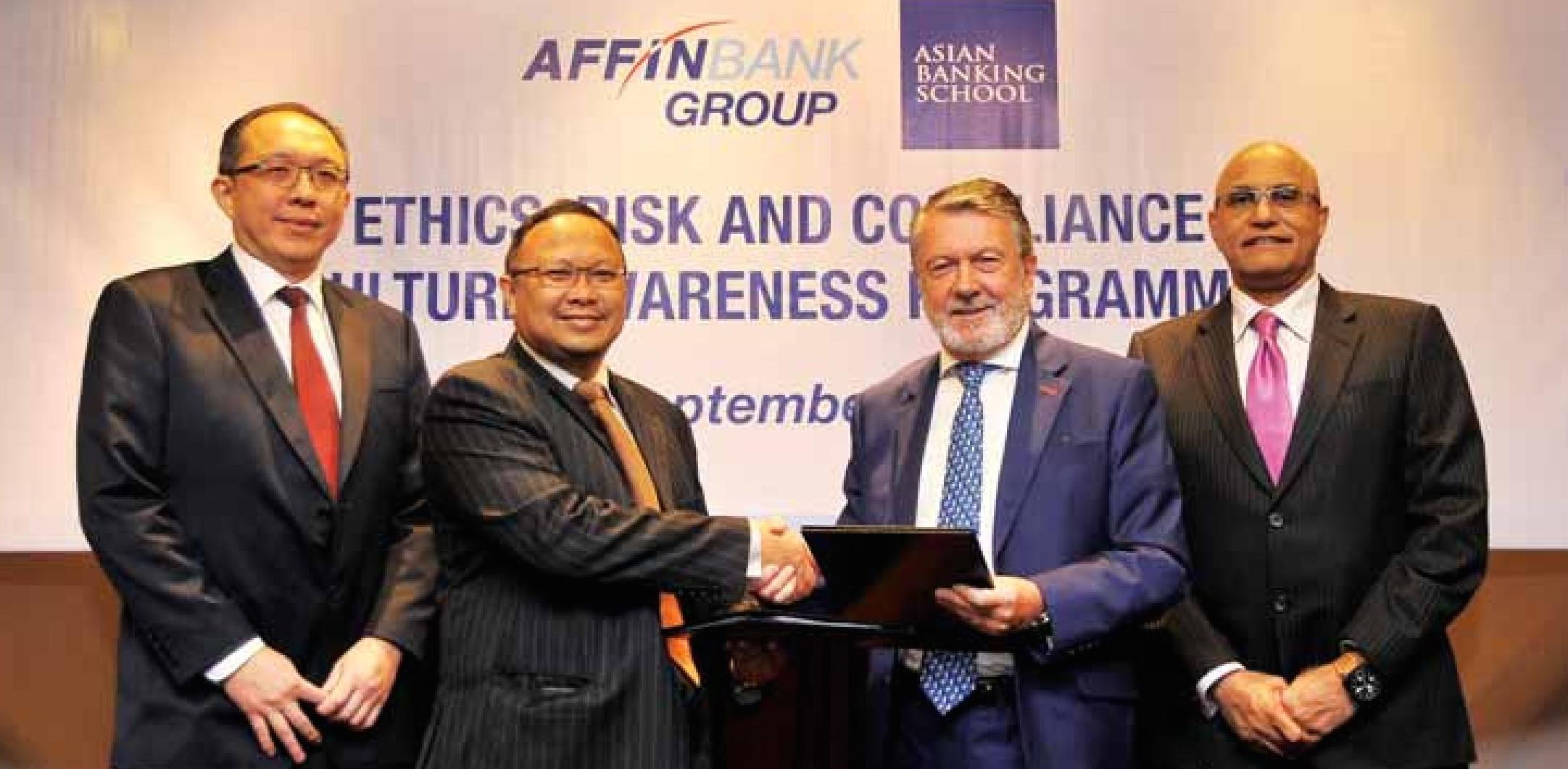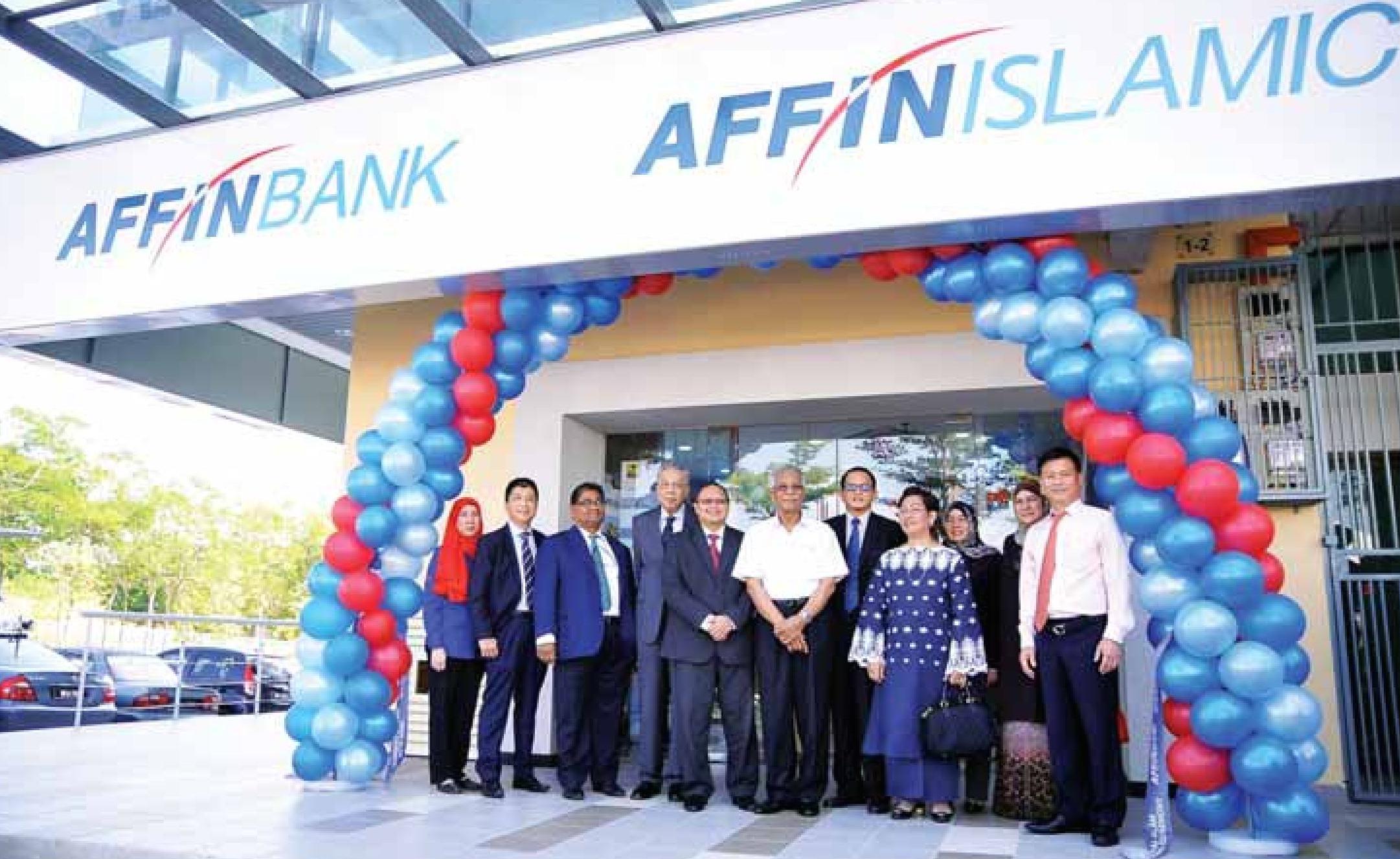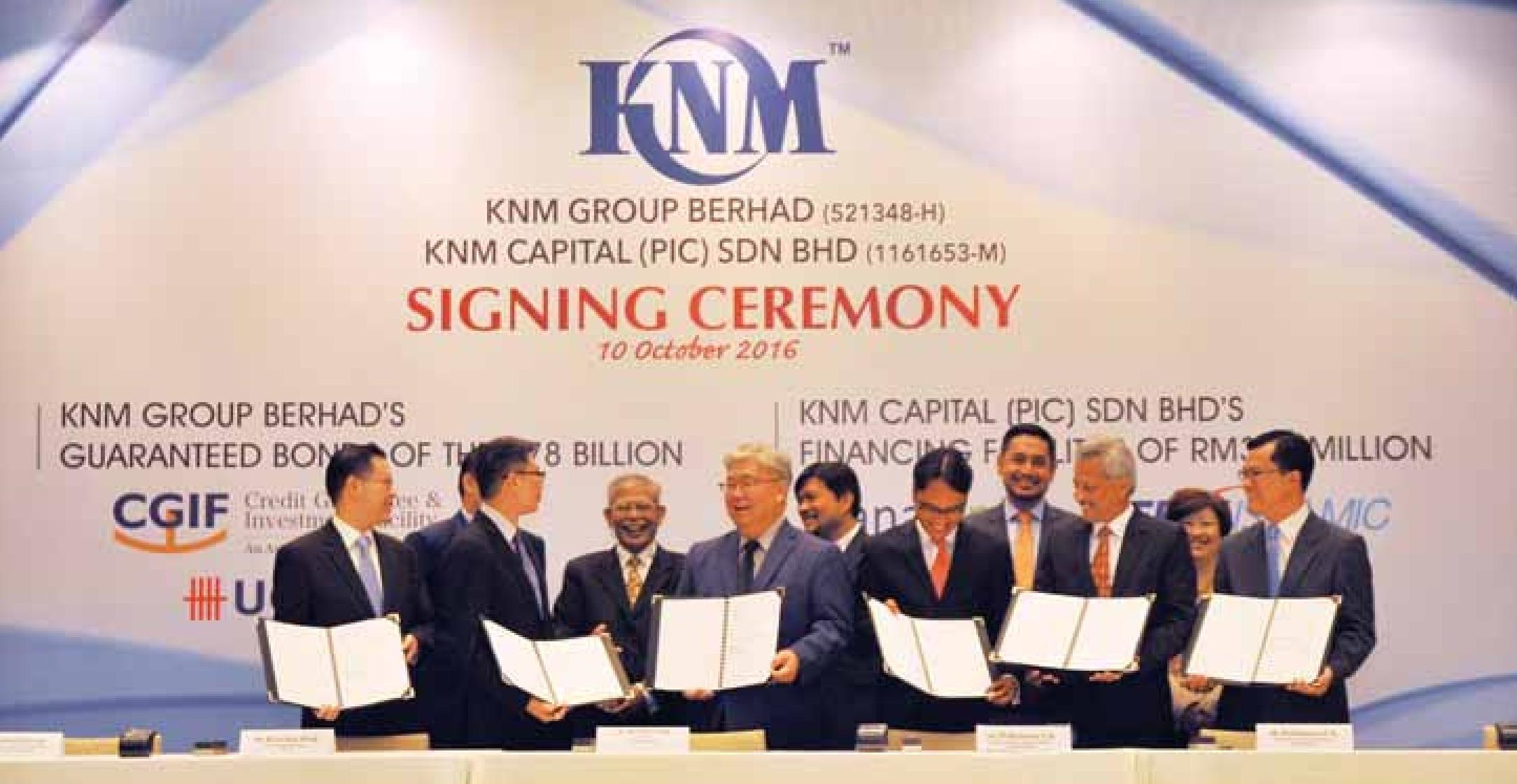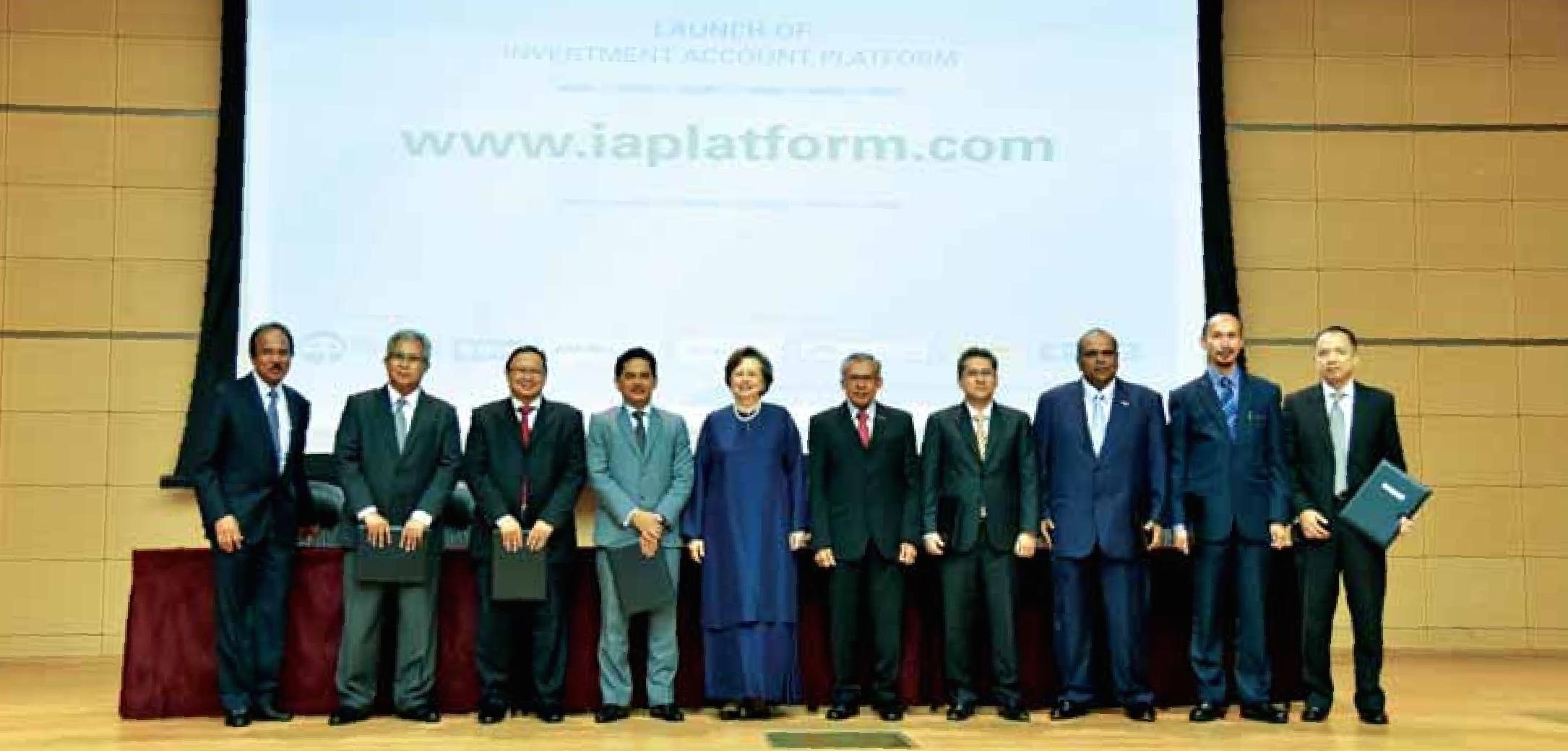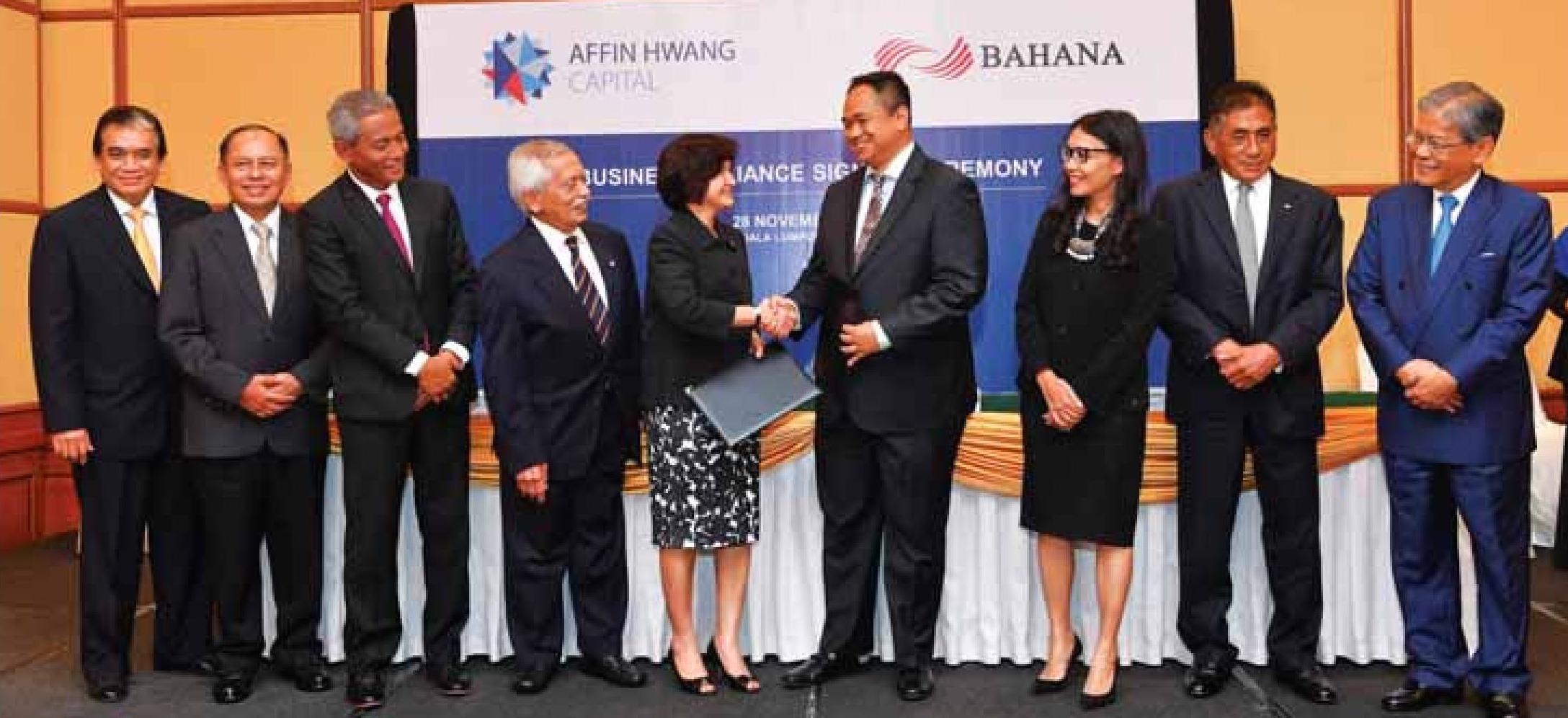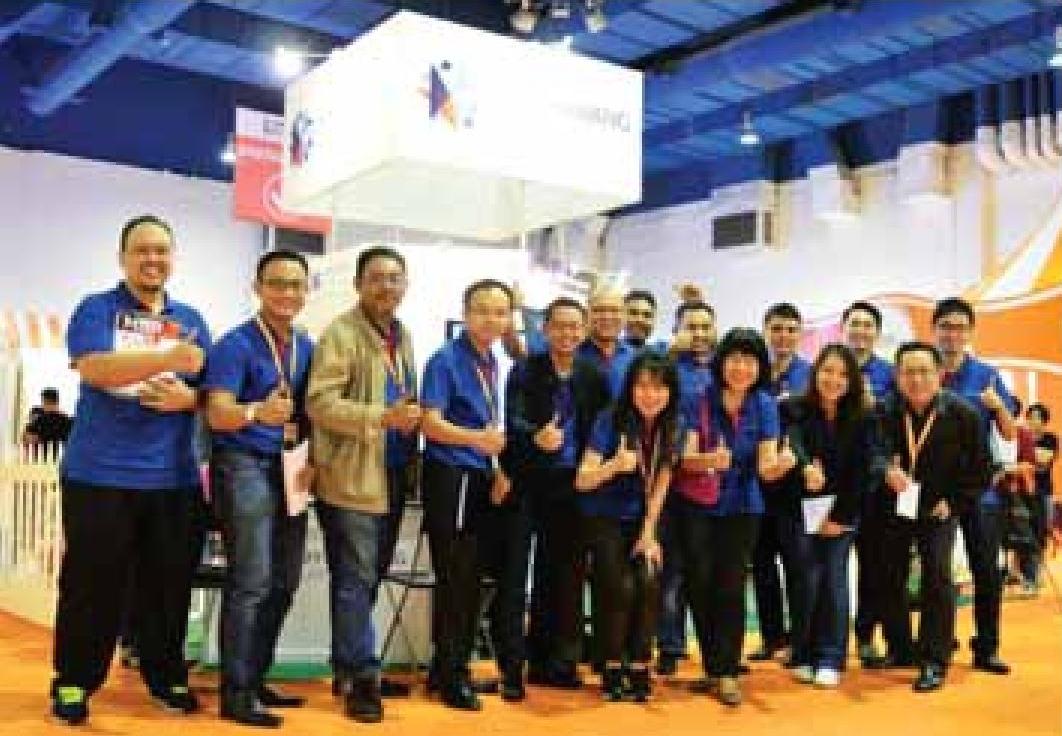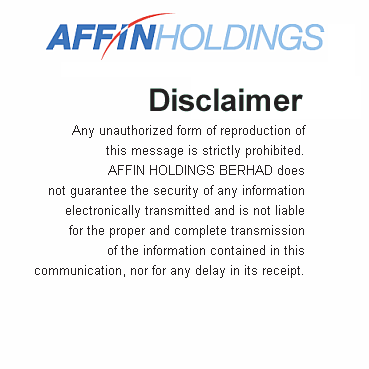
|
||
|
About Us > Management Discussion And Analysis Management Discussion And Analysis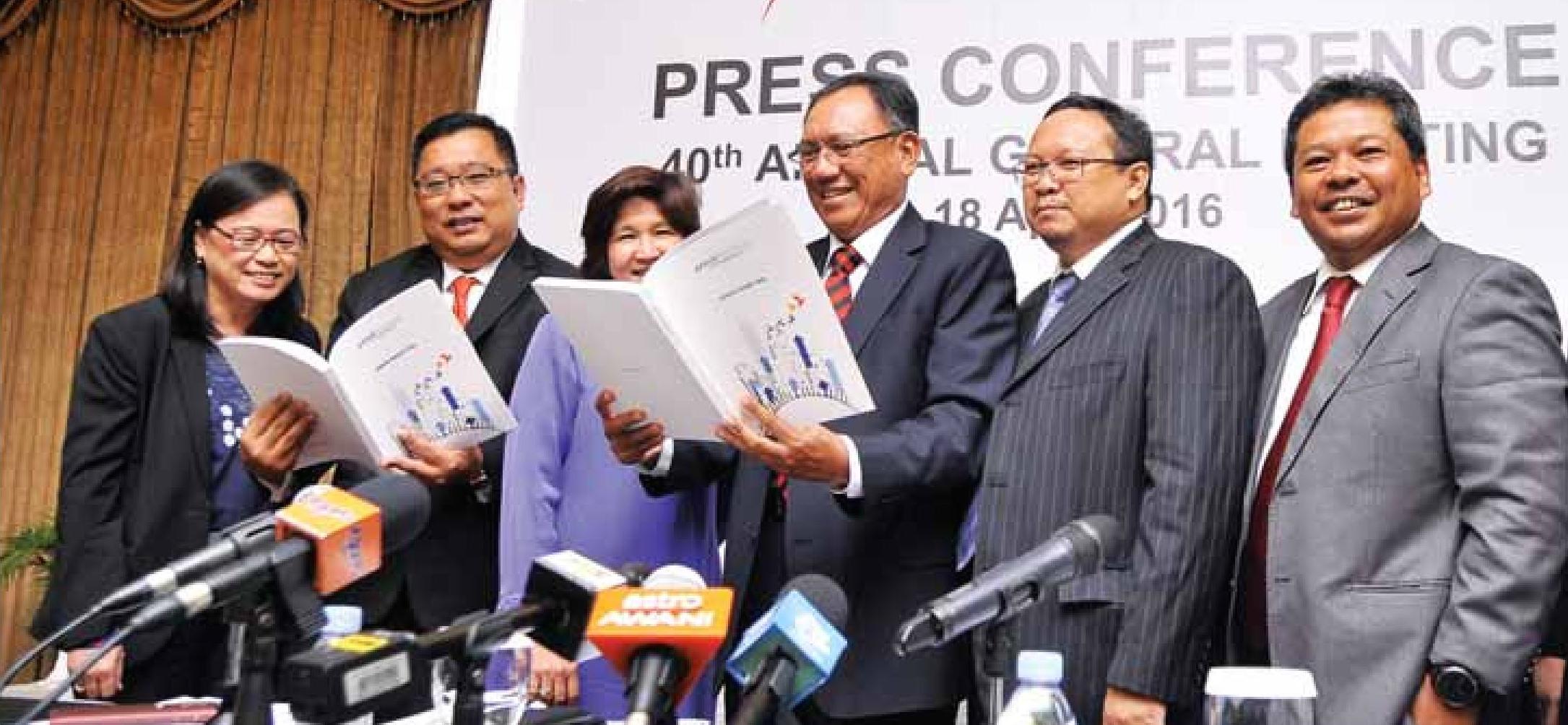 ECONOMIC OUTLOOK Malaysia’s real GDP growth is projected to recover gradually from 4.1% year on year in 1H2016 to around 4.2% estimated for full-year 2016 (5.0% in 2015). Against a backdrop of modest but healthy growth in the global economy, it is expected that the country’s real GDP growth to improve to 4.4% in 2017, supported by domestic demand, especially from private consumption and investment. However, as a highly open and trade-dependent economy, Malaysia’s real GDP growth and external demand will likely be influenced by the health of the global economy in 2017. The International Monetary Fund (“IMF”) expects some improvement in the global economy, with global GDP growth of 3.4% year on year in 2017, higher than its forecast of 3.1% in 2016 (3.2% in 2015). However, the global economy is still clouded by uncertainty from the Brexit vote and the sustainability of China’s economic growth, as well as tensions from the US political scene, with anti-trade sentiment on international trade. There is a possibility of some slowdown in world economic indicators that may prompt IMF to make another round of downward revisions to global GDP growth for 2017, which has already been revised downward three times from the earlier projection of 3.8% a year ago. The improvement in the government’s budget fiscal deficit from -3.1% of GDP in 2016 to -3.0% of GDP projected for 2017 can be achieved, but based on the assumption that the revenue target is attainable. Government revenue is projected to increase from higher collection from direct taxation and oil-related revenue (based on a crude oil price assumption of US$45/barrel in 2017 vs. US$40/barrel in 2016). Consumer spending should be supported largely by support initiatives that were announced in the recent 2017 Budget, such as BR1M for low-income household groups. In addition to on-going infrastructure projects such as the Pan Borneo Highway, RAPID, and MRT Line 2, the announcement of new projects in the latest Budget 2017, especially the new East Coast Railway Line (ECRL) project connecting Klang Valley to the East Coast, should provide a boost to private investment growth. Export growth is expected to pick up from 0.1% year on year in 2016 to 2.5% in 2017, while import growth should rise from 1.4% to 2.7% over the same period, with the trade balance improving slightly to RM83.4 billion in 2017 (estimated RM82.7 billion in 2016). The current account surplus is expected to narrow from 1.3% of Gross National Income (GNI) in 2016 to 1.0% of GNI in 2017. The sustainability of Malaysia’s current account surplus position should be determined mainly by the trade surplus, as both a services deficit and an income deficit will likely persist in the quarters ahead. The Malaysia’s headline inflation is expected to average around 2.2% to 2.3% in 2016 (2.1% in 2015) before rising to 2.6% in 2017. BNM has left its policy rate unchanged at the Monetary Policy Committee (MPC) meeting on 23 November 2016. BNM’s decision to cut its Overnight Policy Rate (OPR) rate by another 25bps at meetings in 1H2017 would be data-dependent, especially on external uncertainties. Against any major downside risks from external developments, it is believed that Malaysia’s economic fundamentals will remain sound, supported by an improving economic outlook, lower fiscal deficit position, sustainable (though narrowing) current account surplus, healthy foreign exchange reserves as well as manageable inflationary pressure. The global economy is still clouded by uncertainty from the Brexit vote (i.e. possible reduction in trade and financial flows between UK and the rest of the European Union) and the sustainability of China’s economic growth, as well as financial volatility stemming from US monetary policy and capital flows on emerging markets. According to the IMF, the downside risks to 2017 would also be influenced by tensions from the US political scene, where anti- immigrant and anti-trade rhetoric has been prominent from the start of the current presidential election. Across the world, the IMF noted that protectionist trade measures have been on the rise. The World Trade Organization (“WTO”) also cautioned about rising concerns of growing anti-globalization sentiment, where anti-trade policy positions could worsen from the perspective of global trade as well as job creation and economic growth and development, which are closely linked to an open trading system. In the past, based on IMF’s definition, global growth of below 3% is “equivalent to a global recession.” However, global growth has not been weaker than 3% since 2009, when the world economy stalled in the wake of the Global Financial Crisis, and it is believed that the risk of global growth falling below 3% in 2016 and 2017 is relatively small. GROUP’S FINANCIAL PERFORMANCE For the financial year ended 31 December 2016, the Group reported a Profit Before Tax After Zakat (“PBT”) of RM737.7 million, a significant improvement of RM223.3 million or 43.4% as compared to RM514.4 million achieved in 2015. The improved performance was mainly due to lower allowance for loan impairment of RM170.0 million as well as the increase in other operating income, Islamic banking income and net interest income totalling RM133.4 million. The share of profits in associate was also up by RM26.2 million while the share of losses in joint venture company was lower by RM14.6 million. For the financial year under review, both the overhead expenses and finance cost were higher by RM57.2 million and RM15.7 million respectively, and there was an allowance for impairment loss on securities of RM24.9 million as compared to a write-back of RM23.8 million in the previous year. In line with the AHB’s financial performance and dividend policy, the Board of Directors has proposed a single-tier final dividend of 2.0 sen per share for the financial year ended 31 December 2016. With effect from financial year 2012, the Company adopted a dividend policy to pay a minimum dividend based on 50% of the Company's profit after taxation for each financial year, provided the distribution would not be detrimental to the Company's cash requirement or any plans approved by the Board. In recommending dividends, the Board endeavours to maintain a consistent and regular dividend payment policy that promotes a stable stream of return to the shareholders of AHB, taking into consideration the allocation of capital resources to support the organic business growth of the Group. In December 2016, AHB won the Merit Award for most improved annual report at the Malaysian Asean Corporate Governance Awards 2016. 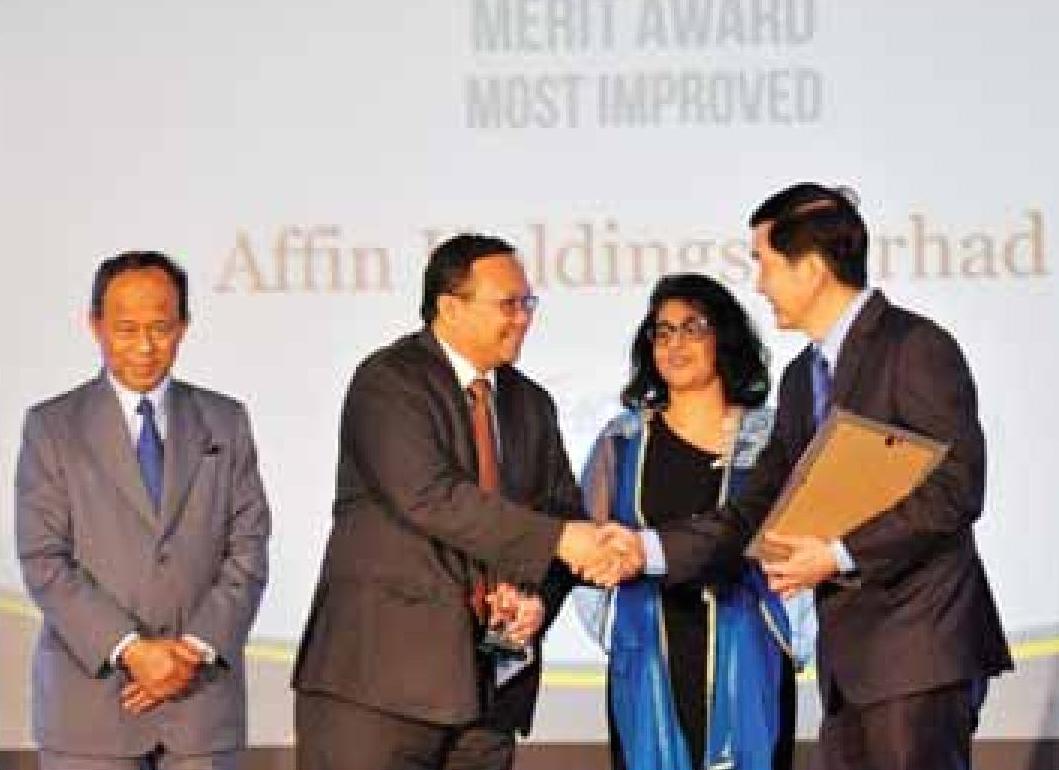
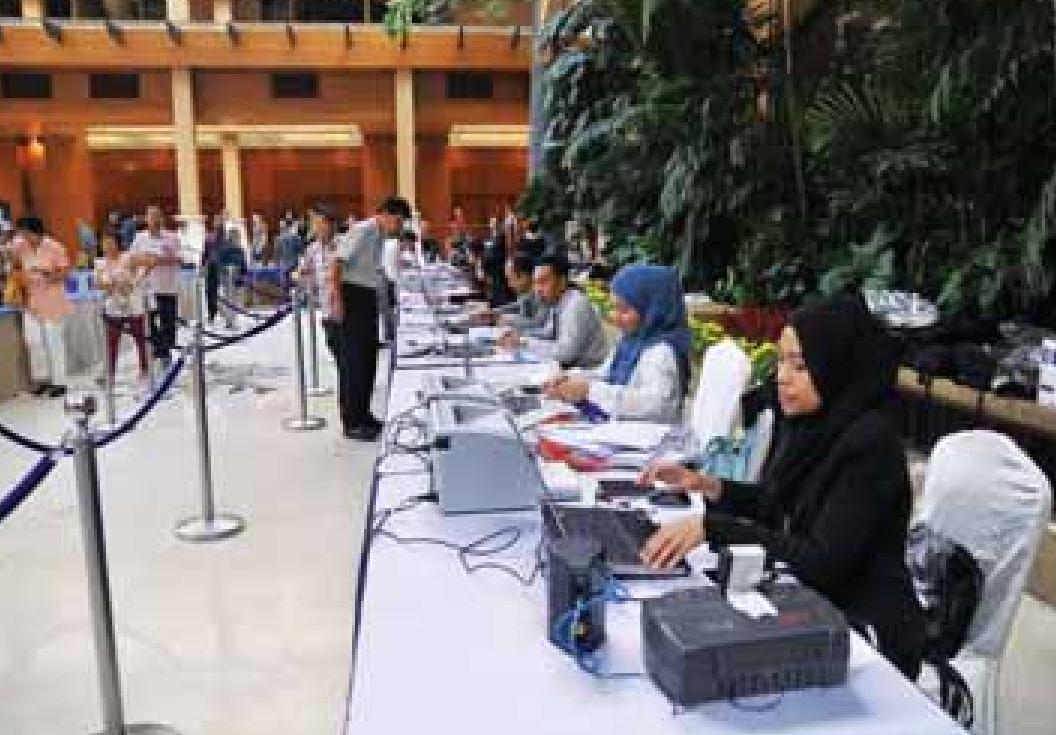
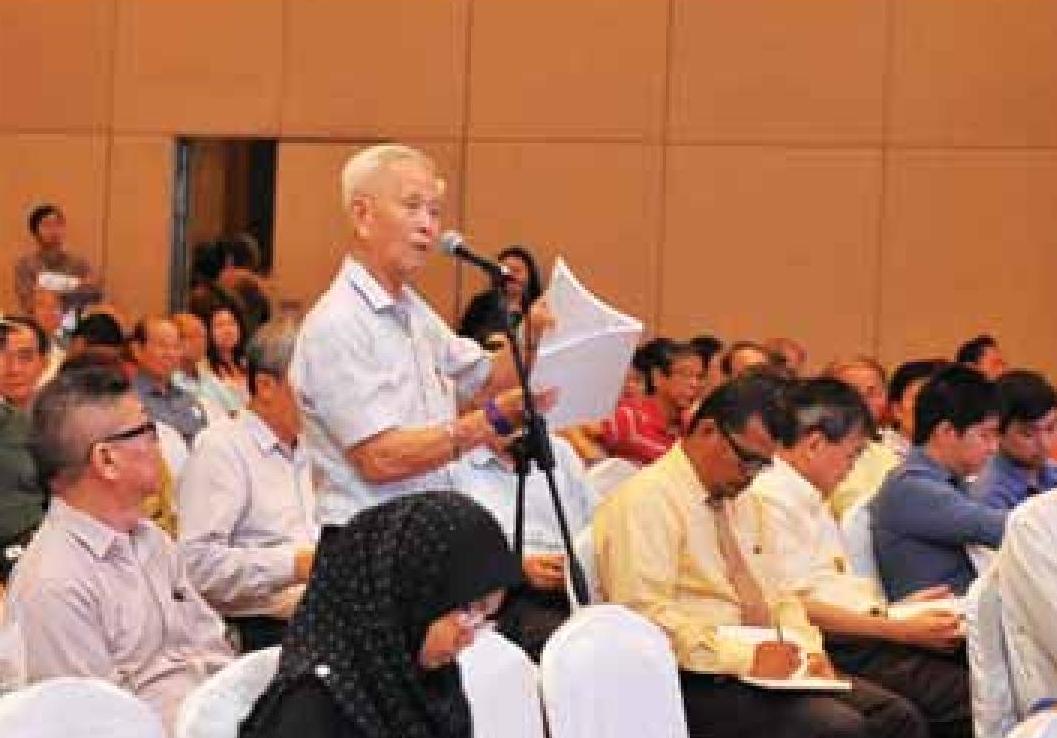
The main types of risks faced by the Group include the following:-
Identifying and monitoring of emerging risks are integral to the Group’s risk management approach. The emerging risks are identified through a top-down and bottom-up approach involving members of the Group Board Risk Management Committee, Board Risk Management Committees of the financial subsidiaries, senior management, independent risk management and control units and business units. This is followed by comprehensive risk assessments to qualify the risk exposures and the mitigation impact of the risk management with policies and guidelines on business activities and business strategies. The assessments serve to identify the appropriate risk mitigating initiatives to manage the emerging risks. In addition, stress testing, both internal and regulatory programmes are used to assess the effect of changes in economic conditions on the Group’s operations. The Board of Directors of AHB has the overall responsibility in establishing a sound Terms of Reference and Group ERM Framework and risk management structure as well as reviewing its adequacy and effectiveness. The Group ERM framework is designed to manage the Group’s risks within its risk appetite and capital management to achieve the business goals and objectives. The Board has established a risk governance structure to ensure effective oversight of risks and strategic risk management in the Group. The Group has a well-established risk governance structure to proactively manage risks in the interests of all stakeholders. The Board acknowledged that the Group has effective on-going process to identify, qualify, quantify, manage and report on significant risks faced by the Group in its pursuit of financial and non-financial performance. The Board, through its committees and engagement sessions with the risk management committees at the subsidiaries maintains overall responsibility for oversight risk and strategic risk management within the Group of Companies. An effective risk management system is vital for AHB Group to create value to its shareholders, customers, counterparties, employees, investors and the community it serves at large. As risks evolve from time to time, the Group continues to enhance its integrated risk management approach and processes towards the effective management of Group Enterprise Wide Risk Management. The Group Risk Management Framework is governed by a strong oversight and strategic ERM function comprising AHB Board, Financial Subsidiaries Board, Management Committees, Group Chief Risk Officers as well as all Business and Support units in Risk Management Departments. 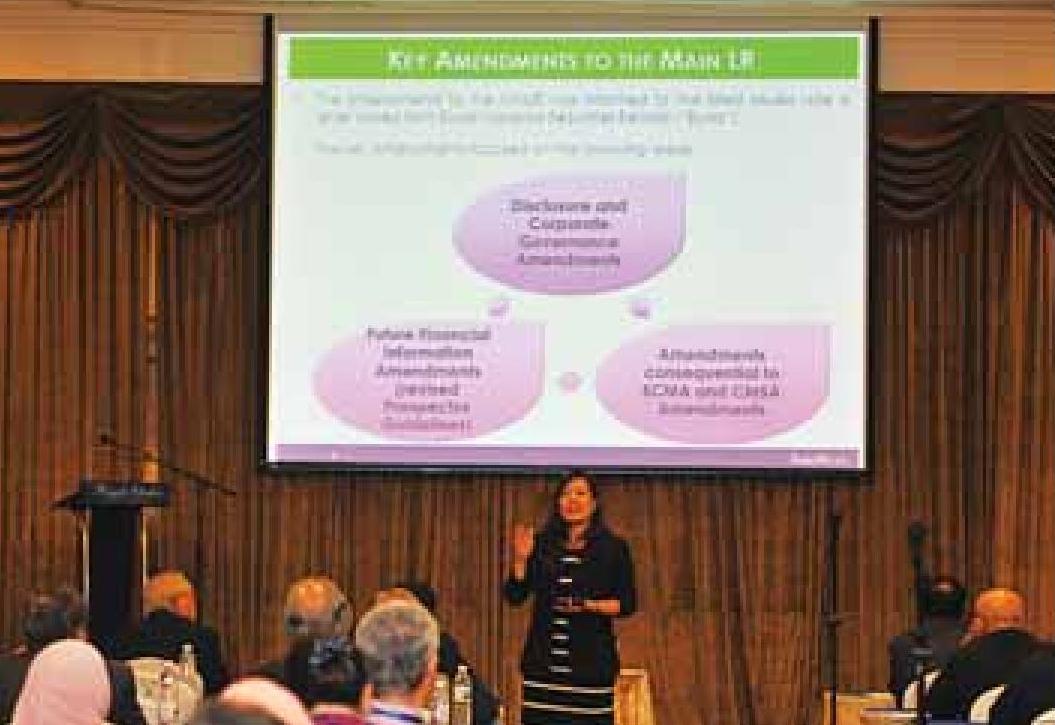
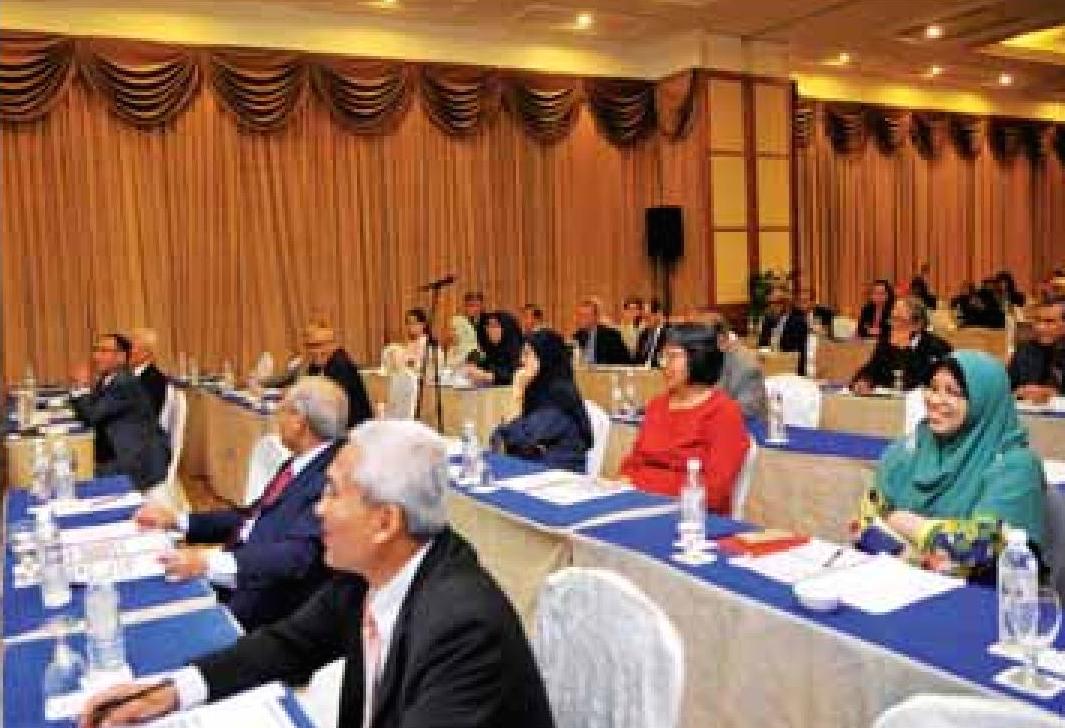
AFFIN Bank Berhad (“AFFINBANK”) AFFINBANK offers a plethora of conventional and Islamic financial products and services for consumer, corporate, commercial, small & medium enterprises (“SMEs”) and institutional clients. The Bank offers Islamic financial products and services through its wholly owned subsidiary AFFIN Islamic Bank Berhad. In view of the strong demand and growth in the Islamic financing front, the Bank has launched its Priority Islamic Policy (“PIP”) which is the Bank’s strategic move to be aligned with the Central Bank of Malaysia’s Financial Sector Blueprint for financial institution to enhance its Islamic financing portfolio to 40% in 2020. Under this new business approach, all new accounts and facility application are encouraged to be booked under Islamic portfolio and it has shown progress as the Bank’s Islamic portfolio has increased to 27.8% (as at December 2016) of the Bank’s total banking assets. The Bank has also embarked on a three-year Group Strategic Transformation Program known as ‘AFFINITY’. AFFINITY is by far the biggest transformation exercise that the Bank has embarked on. One must understand that the Banking landscape has evolved and with this comes new challenges namely, the disruption caused by Financial Technology (“Fintech”), the way customers perceive banking, the state of the economy and the weakening of Deposits and Loan Growth hence the importance of AFFINITY to elevate the Bank to greater heights. Under AFFINITY, there are thirty-two (32) new transformation projects (17 of which has been initiated beginning July 2016) being identified across eight pillars, namely targeted customer segments, delivery channels, products and solutions, operations, technology, people and organisation, performance management and risk and compliance governance. The Bank is also currently in the process of enhancing its digital banking positioning to elevate its competitiveness in the industry, in line with its aspiration to become highly digital & innovative Bank with customer centricity at heart. Apart from driving deposits, AFFINBANK implemented quarterly branch reviews as an avenue to share ideas for betterment and provide a platform to give recognition to performers with respect to customer service and compliance. This has resulted in lesser audit and compliance issues at the branch level. Under the AFFINITY program, monthly collaboration meetings with product hubs and Business Centres are being held to tap on existing customers for business opportunities and bigger share of wallet. In terms of branch network, ABG has ninety-nine (99) conventional branches including two new branches opened in 2016 at Kota Damansara, Selangor and Tabuan Jaya, Sarawak and nine (9) Islamic branches respectively in Malaysia. The Bank will continue to expand their branch network to ensure that the Bank is well represented in Malaysia. The Bank has successfully issued RM1 billion subordinated debt in February 2017, part of the issuance of the Bank’s Medium Term Notes (“MTN”) Program of RM6.0 billion. The MTN Program can be utilised amongst others, for general banking, working capital requirements and business purposes of the Bank. On a different note, the Bank signed an agreement on 22 September 2016 with the Asian Banking School (“ABS”) for the provision of a customised training programme on Ethics, Risk and Compliance Culture Awareness (“ERC”) (the first Bank in Malaysia to partner with ABS for ERC). The objectives of this program are to empower staff to develop ethical and critical, risk-return based decision making skills and to align core behaviour to inculcate a strong and healthy ethics, risk and compliance culture. AFFINBANK Group registered a PBT of RM599.9 million for the financial year ended 31 December 2016, an increase of RM142.4 million or 31.1% as compared to RM457.5 million achieved in 2015. The improved performance was mainly due to lower allowance for loan impairment, net of lower recoveries of RM163.3 million, higher other operating income and higher Islamic banking income of RM35.0 million and RM33.9 million respectively.
Consumer Banking In 2016, Consumer Banking implemented AFFINITY Quick Wins Initiatives, BMS as Sales Leader, Repeat Purchase@HP, Mortgage Early Settlement Counter Offer, Deposit Sales @ Branches and strengthen hub-branch Linkages. In addition AFFINBANK also re-launched the AFFINBANK BHPetrol MasterCard® Contactless, successfully re-carded the entire credit card and debit card base from signature to PIN, launched the Cash-on-Call Installment Program, obtain an award for USJ Taipan branch from PNB under PNB-ASNB Starz Award 2015/6 for registering the highest number of counter transactions in AFFINBANK and tied up with Cycle & Carriage Bintang Bhd, Kah Motor Bhd, Naza Kia Malaysia Bhd to offer GAP insurance as part of their product offerings. In 2017, Consumer Banking will focus on AFFIN Digital projects as core part of digitisation of Consumer Banking business as well as revamping front-end channels and re-engineering digital enterprise besides continuing collaboration between branches, hubs and SMEs for better synergies and introducing Combi-Card, Elite/Infinite and Islamic Credit Cards. Hire Purchase The Total Industry Volume (“TIV”) for the new car market declined by 13% in 2016 to 580,124 units compared to 666,677 in 2015. It is the first time that the TIV dipped below the 600,000 mark in six years due mainly to uncertainties surrounding the economy, rising cost of living and weak consumer sentiment. Despite this, AFFINBANK continued to pursue its strategy of managing growth with asset preservation in view of the implementation of MFRS9 in 2018. Despite a slight negative growth last year which was in line with the industry, AFFINBANK managed to improve its sales yield by 30 basis points. During the year, AFFINBANK worked closely with the dealer principals for a win-win relationships, e.g. AFFINBANK offered insurance product from AXA AFFIN General Insurance Bhd i.e. GAP that they can package and sell together with its hire purchase as differentiated product offering to their customers compared to their competitors. Cycle & Carriage Bintang Bhd’s Guaranteed Value Proposition is an example of such win-win relationships. 2017 continues to be challenging and the Malaysian Automotive Association is predicting a mild recovery in sales should the Malaysian economy pick up in the second of half of this year with a forecast of 590,000 units. Against such backdrop, AFFINBANK’s strategy remains unchanged i.e. to remain focused on asset preservation and to pursue more win-win opportunities with AFFINBANK principal dealers. AFFINBANK is also pursuing its AFFINITY quick wins on repeat customer which was implemented last year in which AFFINBANK is exploring ways to encourage its customers to take hire purchase from AFFINBANK after they have settled their existing ones. Mortgage Business Despite the softening property market, Mortgage Business had a sterling performance in 2016. Loan base grew 13% and loan stock increased 60% compared to 2015. This was mainly attributed to the implementation of sales hubs as part of the Consumer Banking transformation. Furthermore, AFFINBANK strengthened its sales team with the recruitment of talented product specialists to increase the team selling capabilities in the marketplace. AFFINBANK will continue the momentum gained in 2016 and focus on few areas i.e. affordable landed property and secondary market, first time house buyers and house owners that are upgrading. The property sector will remain challenging in 2017. Affordability continues to be the main issue with many consumers delaying big tickets purchases like houses due to rising cost of living and uncertain financial and employment outlook. Interest margin remains under pressure. To counter this, AFFINBANK will look at increasing its cross- selling activities to deepen AFFINBANK’s share of customer wallet. The Bank will continue to target young professionals, first home buyers and homeowners looking to upgrade or buy affordable residential properties ranging from RM300,000 to RM700,000. Amanah Saham Nasional Berhad (“ASNB”) Business AFFINBANK is relatively a newcomer in the ASNB financing segment compared to heavyweights such as Maybank, CIMB and RHB. Despite challenges from competition, internal processing and limited resources, AFFINBANK managed to grow the ASNB business by 152% over last year. This year, AFFINBANK will be working closely to improve the process, build a more stable and sustainable sales force and harness opportunities within the Group, LTAT and Boustead to sell and aim to achieve the prescribed PNB-ASNB quota by middle of 2017. Cards Business Cards Business Department achieved commendable results despite the challenging market conditions, outpacing the industry growth rate of 2.5% in loan base by 8.7% year on year (Visa report for FY2016). This was attributed to the roll-out of three regional Card Sales Hubs i.e. in Penang, Johor and Central and strong collaboration with branches and other product hubs. The number of applications increased by 142% whilst the number of approved credit card grew by 238%. In addition, Cards Business also successfully completed a re-carding exercise in line with the move from being signature to PIN based. Furthermore, AFFINBANK also relaunched the AFFINBANK BHPetrol Contactless MasterCard® and Cash-on-Call Instalment Program. Card business has also been placed under the AFFINITY program to strengthen the business which includes defining its go-to-market strategy to increase card base, merchants and profitability. As a result, more product offerings will come on-board in 2017 which includes the introduction of Elite/Infinite cards for the super affluent market segment, UnionPay to cater to customers doing business in China and Islamic credit card to allow AFFINBANK to penetrate into this growing segment offering our customers better choices. Wealth Management In general, the investment sentiment among the high net worth customer segment continues to be cautious. Fixed Deposits remained the primary option with real estate investments a close second. Unit Trust Funds and Investment-Linked Insurance continue to remain the core products in Wealth Management for most banks. Moreover, there are tractions on structured products such as Dual Currency Investment (“DCI”) as well as Equity-Linked Notes (“ELN”). AFFINBANK is working very closely with its partners including AFFIN Hwang Asset Management to introduce more sophisticated products to the Bank’s affluent customers. In 2016, AFFINBANK had adopted a shift from product push to emphasize on customer needs with the objective of strengthening the Bank’s relationship with customers. This shift which is part of the Consumer Banking transformation came together with the establishment of Wealth Management teams housed in selected branches to provide better service thus helping AFFINBANK to grow its Asset Under Management (“AUM”) from RM95 million to RM142 million in 2016. It is believed that a deeper understanding of the Bank’s customer segments and needs will shape its future value propositions and privileges and these will help AFFINBANK achieve recognition as one of the preferred providers of quality investment advisory and banking services for our affluent customer segment. The on-going market liberalisation has facilitated growth in the wealth management industry and these reforms have helped increase the liquidity for the trading of equity, bonds and derivatives in Malaysia. This has enabled many financial institutions to provide more sophisticated products to high net worth customers. It represents both an opportunity and a challenge for AFFINBANK to focus on the importance of overall portfolio management for this group of customers. In 2017, AFFINBANK will launch the Personalised Banking platform which sees a shift from just merely providing transactional conveniences, towards a cohesive unit with financial planning advisory competence and quality offerings of product, services and privileges. AFFINBANK aims to constantly review its service packages, introduce new ideas and make bold changes to become a convenient one-stop financial solution centre for High Net Worth (“HNW”) customers. Over time, AFFINBANK plans to be ready for new business opportunities and strive towards becoming one of the preferred banks for the High Net Worth segment. Digitalisation Roadmap Digitalisation Roadmap in AFFINBANK had kick-started with the launch of AFFIN Digital focusing on two main ecosystems, revamping front-end touch points and re-engineering digital enterprise. AFFIN Digital strives to re-engineer consumer business to be customer centric with digital innovations at core, with the first priority on consumer banking and continue to expand to other business areas. Thus, creating a seamless, easy-to-use digital proposition at all customer touch points.
The 3-year roadmap consists of 22 projects in the pipeline which aims to create lasting impression and top mind awareness towards AFFINBANK brand, introduce new and exciting technologies to banking services and promote strategic partnerships to create value- added products and services. Moving forward, AFFINBANK aspires to become a premier digital bank in Malaysia with digital transformation in the following areas namely, to prioritize mobile focus development for all products and services, provide consistent customer experience across all channels, i.e. start digital end traditional (“SDET”) or start traditional end digital SDET, explore next-day technologies, collaborate with FinTechs to fast-track innovation and create innovation lab to spur innovative thinking and culture, leverage social media platforms and digital marketing efforts to reach and engage new and existing customers, provide peace of mind banking for customers at all digital touch points and become a highly digital and innovative bank with customer centricity at heart, coupled with analytics to offer right products at the right time, using the right channel. The Bank has also won the JomPay Award being the highest biller acquired within Group B consisting of local and foreign banks. AFFIN Islamic Bank Berhad (“AFFIN ISLAMIC”) AFFIN ISLAMIC gained traction on several strategic fronts and achieved new milestones on its 10th anniversary in 2016. The Bank successfully navigated through a challenging environment of contracting margins and intensified competition to continue registering growth in all key parameters. AFFIN ISLAMIC’s deposit portfolio continued to grow by 5.0% despite intense competition for deposits during the year. This was a result of various collaborations with its parent company, AFFINBANK. These included promotions such as the OMG Deposit Campaign, Joyful Raya Merdeka Deposit Campaign, 20% Cash Back for Debit/Credit Card usage, AFFIN E-Fair campaign (for online services, bill payment and financing). The Bank’s financing portfolio benefitted from RM2.7 billion to record 29.3% growth from the previous year. Together, these enabled AFFIN ISLAMIC to end the year with total assets of RM15.3 billion, an expansion by 14.2% from the previous financial year. 2016 saw AFFIN ISLAMIC entered into a number of collaborative ventures between Islamic financial institutions which included the founding and launch of the Investment Account Platform together with five other Islamic banks. IAP, the first Shariah-compliant digital investment platform is expected to gain greater momentum in the future with the growing demand for online crowdfunding supported by a robust risk management infrastructure. The platform benefits entrepreneurs and small and medium enterprises that require financing in a more structured and cost-effective manner by allowing investors to invest directly into business ventures and enjoy higher potential returns. One of the three inaugural investment accounts offered on IAP during the year was developed by AFFIN ISLAMIC involving ICT Zone Ventures Berhad for a total financing of RM4 million to aid in supplying computer notebooks for Program Latihan Khidmat Negara (PLKN) programme on a rental basis.
AFFIN ISLAMIC, together with seven other banks, participated in a syndicated Islamic financing facility with UDA Holdings Berhad for up to RM500 million to partly-fund the property developer’s eight upcoming projects including serviced apartments at Jalan Sultan Ismail in Kuala Lumpur and condominiums in Cheras. AFFIN ISLAMIC also signed a Memorandum of Understanding with the Islamic Corporation for the Development of the Private Sector or ICD, the private sector arm of Islamic Development Bank Group in Saudi Arabia at its headquarters in Jeddah. Both parties will work towards identifying areas for strategic collaboration within the Asian region in the fields of technical and advisory support on product development and Shariah concepts such as placement of funds, lines of finance and liquidity management. 2016 also saw the Bank collaborate with Danajamin to provide a financing facility of RM160 million to KNM Group Berhad for projects related to Refinery and Petrochemical Integrated Development (RAPID) in Pengerang, Johor. The Bank continued to enhance its services by strengthening SME facility creation processes and develop new business products that offer higher profitability. 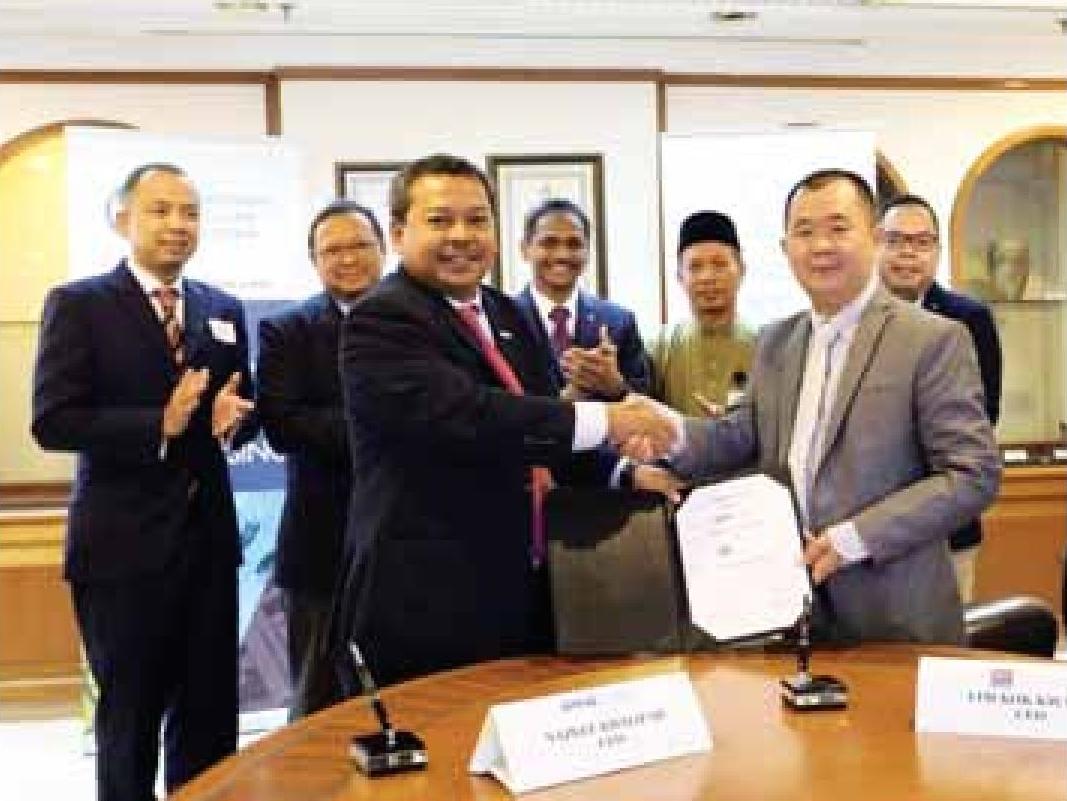
Efforts to widen customer reach among the millennials saw marketing campaigns focus on the technology-savvy trend by utilizing online engagement and social media interaction. This included social media campaigns in collaboration with The New Straits Times Press Malaysia as the main sponsor for Harian Metro Mountain Bike Grand Prix 2016 to promote healthy lifestyles. Other initiatives included a nationwide advertisement campaign to generate further brand awareness while future plans include actively promoting products and campaigns on the Youtube channel. AFFIN Education Financing-i, was one of two products launched in 2016 in collaboration with Management Science University. The Shariah-compliant financing facility offers financing of between RM5,000 and RM150,000 for deserving students from universities and colleges who wish to further their studies in diploma, degree or postgraduate courses. The Bank also launched the Restricted Investment Account (RIA) under a Mudarabah concept (profit sharing and loss bearing) offering returns based on performance of underlying assets, investment into specified assets with a mandate by customers and maturity and withdrawal conditions agreed at inception stage. The Bank’s participation in a number of prestigious industry events further enhanced its position as one of the major Islamic financial institutions in the country. These included the Global Islamic Finance Forum ,13th Annual Kuala Lumpur Islamic Finance Forum and the 6th ISRA-IRTI-Durham University Strategic Round.
AFFIN ISLAMIC enjoyed a commendable performance in 2016 registering a 32.8% increase in profit after zakat and taxation (“PAZT”) to RM112.6 million in 2016 on the back of 29.1% financing and 5.3% deposit growth respectively. New financing income grew from RM205.7 million to RM229.0 million, an increase of 11.2% while total assets stood at RM15.3 billion, representing a 14.2% increase from 2015. The Bank’s good asset quality was reflected by an improvement of 0.7% in the gross impaired financing ratio from 1.5% to 0.8%. Net impaired financing ratio declined substantially to 0.6% from 1.1% the previous year, while Return on Equity and Return on Asset improved by 8.3% and 21.5% respectively. 2017 will see the Bank continue to strengthen its network presence and customer reach with the upcoming launch of mobile and enhanced internet banking in line with the increasing utilisation of online transactions and online marketing channels such as Facebook, Instagram, Youtube and Twitter. In addition AFFIN ISLAMIC will also enhance its financing portfolio, in line with the Priority Islamic Policy implementation focusing on resilient and recession proof industries. AFFIN Hwang Capital AFFIN Hwang Capital (“AHC”) is the investment banking group which is organised around three principal business areas namely Investment Banking, Securities and Asset Management. Over the last two years, its focus has been to consolidate and rationalise its business operations subsequent to the merger of businesses between AFFIN Investment Bank Berhad group and HwangDBS Investment Bank Berhad group. For the financial year ended 31 December 2016, AHC reported a Pre-Provision Operating Profit (“PPOP”) of RM131.6 million that was mainly due to a 7.9% improvement in Net Income from RM509.1 million to RM549.1 million. This was driven primarily by an 8.2% increase in Fee Income from RM353.1 million to RM382.2 million. Operating Expenses had also improved by RM7.7 million led by a 10.9% improvement for personnel costs primarily from impact of staff rationalisation initiative. Consequently, Profit Before Tax after Zakat (“PBT”) and Profit After Tax (“PAT”) came in at respectable RM129.8 million at RM103.2 million respectively. After tax Return on Equity climbed up to 5.9% while Cost to Income ratio has similarly improved. AHC continues to foster and establish strategic partnerships in the region for cross border collaboration, especially in the areas of institutional equities trading and research that now includes partnerships with the Daiwa Securities Group of Japan, Thanachart Securities Plc of Thailand and recently with PT Bahana Securities of Indonesia. AHC’s efforts have resulted in a number of international and domestic recognitions which included Most Improved Brokerage in Malaysia as well as the third-ranked Best in Sales Trading in Malaysia by the Asiamoney’s Brokers Poll 2016, while continuing to be the market leader in terms of both market trading value and volume on Bursa Malaysia for three years running. Two of its analysts were selected as winners in The Edge’s Best Call Awards 2016. AHC also won the Best Asset Manager in Malaysia and the Best Asset Management House of the Year in Malaysia as awarded by Euromoney Private Banking & Wealth Management Survey and The Asset Triple A Islamic Finance Awards respectively in 2016. AHC also received a Notable Mention by The EDGE in the Best M&A Deals, while also came in second in the Malaysian Borrower Loans league table ranking for 2016 by Bloomberg. Investment Banking Overall, there was much less capital market activity in 2016 compared to the previous year. Among the year’s key assignments were the Initial Public Offering (“IPO”) of Serba Dinamik Holdings Berhad, one of the largest domestic IPOs over the last 19 months, as well as the divestment of Brahim’s Holdings Berhad’s 49% interest in Brahim’s Airline Catering Holdings Berhad to SATS Ltd., where the exercise was a Notable Mention for the Best M&A Deals by The EDGE. We were also one of the lead managers for the RM25 billion sukuk for Lembaga Pembiayaan Perumahan Sektor Awam. The current challenging economic environment is expected to continue, and coupled with low commodity prices, these may adversely impact the debt servicing capacity of borrowers and issuers. In general, AHC would expect to be more prudent in selecting new credit exposures. AHB will continue to focus on engaging its clients and undertake to strengthen the relationships further. In addition, the collaboration with AHC’s regional alliance partnerships will provide increased opportunities for cross border deals. AHC will also maintain engagements within various business units within the AFFIN Banking Group for more referrals opportunities. Securities The FBMKLCI fell from 1692 to 1641 year-on-year, with trading value and volume also came off by 5.5% and 13.5% respectively. AHC’s market share meanwhile further improved from 10.9% to 11.4% and 14.4% to 14.9% for market trading value and volume on Bursa Malaysia respectively. AHC’s Joint Distribution and Marketing Agreement with Bahana Securities in late 2016 will further enhance its position for outbound trade flows. The market has been impacted by both local and global events. Notwithstanding that, the strong domestic liquidity, healthy economic fundamentals as well as continuous primary and secondary market fund raising exercises will continue to lend support to the domestic equity market. Client centricity will be a core focus area. AHC will also leverage on our regional alliance partnerships to grow its institutional outbound business, where the growth prospect is expected to remain positive, supported by the increasing trend of assets diversification by domestic investing institutions. The ongoing technology driven revamp of its retail broking business model is expected to bring positive outcome in the medium term. AHC is also constantly evaluating new sources of growth to diversify its earnings base from traditional brokerage income. Amongst some of the new products identified are Securities Borrowing and Lending services. Asset Management Despite the cautious market sentiment, the Assets Under Administration (AUA) grew from RM34.9 billion to RM36.3 billion year-on-year, with increase mainly from retail segment. Correspondingly, supported by thirteen new funds launched during the year, the initial and management fees were relatively stronger than previous year’s performance. Despite having sustainable revenue base on the fund size, the asset management business will continue to capitalise on the growth potential in the retail and high net worth business categories to further strengthen the relationship and deepening the share of wallet among customers. Continuous efforts on engaging new business partners and expanding to different segments of high potential customer base will be part of the focus in the coming year. The asset management business is also finding new ways to generate added revenue for the business by launching new funds and venturing into different type of products to penetrate the market moving forward. AXA AFFIN Life Insurance Berhad (“AALI”) AALI is a joint venture company between AXA Asia Pacific Holdings Ltd (“AXA”) and AHB. AXA is an international Group with a global presence in 64 countries including Europe, North America, Africa and Asia Pacific and has a workforce of more than 166,000 employees. Recognised globally for their financial protection and wealth management expertise, AXA, headquartered in Paris is focused on helping individuals manage risk and achieve their financial goals. In Malaysia, AALI strives to build close and lasting relationship with its customers who are offered support and advice with the highest standard of professional ethics, to help them pursue life confidently. AALI’s product offerings are distributed through its bancaassurance and agency sales channels. Leveraging on AXA Group's strength as a financial protection expert and AHB’s local knowledge and diversified network, AALI is focused on helping individuals manage risk and achieve their financial goals via a multi-distribution and multi-partnership strategy to expand reach of customers. AALI reported a net loss of RM16.2 million in 2016 compared to the previous year’s net loss of RM29.2 million attributed mainly to higher investment income and lower expenses.
It however continued to grow its gross premium in 2016 which amounted to RM385.6 million, a healthy 7% increase from RM360.6 million in 2015.While the capital adequacy ratio remains well above the supervisory requirement, a 6% growth in new business was recorded due to a combination of a shift in strategy to a more profitable product mix with a higher proportion in Protection and Health business and prudent cost management. The annualised premium equivalent grew by 1% supported by growth in AFFINBANK, DM/TM, Connect and digital channels while renewed premiums grew by 12%. Customer survey scores were at 76.9 % as part of gauging customer satisfaction. With the Malaysian life insurance industry forecasted to grow at a moderate rate, AALI also expects to continue its growth trajectory on the back of favourable demographics and relatively low insurance penetration. The company will focus on sustaining growth of its distribution channels through a variety of initiatives set out in its strategic plan while customer centricity and digital levers remain key in an increasingly competitive environment. It is envisaged that the interest rate environment will continue to influence profitability levels as it impacts investment returns, reserving for policyholder liabilities and capital requirements. Customer segmentation is in its infancy with growing potentials. Priority segments of the population continue to be mass affluent established families and mass effluent young professionals. This continuous growth is to be achieved through expanding reach of consumers through multi distribution channels and platforms as well as product development to cater to different needs. AXA AFFFIN General Insurance Berhad (“AAGI”) As one of the fastest growing general insurance companies in Malaysia and leader in medical and health insurance (source: ISM), AAGI offers comprehensive protection solutions to individuals and businesses in all areas of general insurance serving more than a million Malaysian customers, with over 800 employees in 22 offices, as well as over 4,000 agents nationwide, brokers and key bank partners. The major joint venture partner, AXA Group is a global leader in insurance offering products that include property-casualty insurance, life and savings and asset management. The Profit Before Tax (“PBT”) of AAGI for the financial year was RM181.2 million, higher compared to previous year’s RM114.8 million. This increase was mainly due to higher underwriting results and higher investment income from gain on sale of investment. AAGI closed 2016 with a gross written premium (“GWP”) of RM1.47 billion, recording a 10.5% growth of RM140 million from RM1.33 billion in 2015. The strong performance was primarily due to the successful execution of strategic initiatives, with positive growth recorded from all regions. The motor insurance segment which accounted for 52.5% of the total business remains the largest contributor recording a growth of 9.5%. During the year, a concerted effort was made to re-design and re- structure policy processing. As a result, a centralised processing centre located in Melaka which has led to a significant improvement in Turn-Around-Time (“TAT”) and accuracy of policy processing. TAT for Policy Processing improved significantly from 76% in 2015 to 94% and Accuracy Rate increased to 98.4% from 97.7% in 2015. IConnect a point of sales system which helps automate policy issuance and endorsement end-to-end was rolled out to all branches and selected agents for travel insurance products. In addition, a number of processes were fully automated with excess staff being re-deployed to other areas to support the incremental growth of the business. AAGI continuously strive to ensure effective and robust risk management by reviewing and assessing all risks facing insurers be it underwriting, reinsurance, investment, geographical, operational and regulatory on a comprehensive basis. Its risk exposures are well within the Company’s tolerance limit of the overall risk appetite framework and are regularly monitored by our risk management department. 

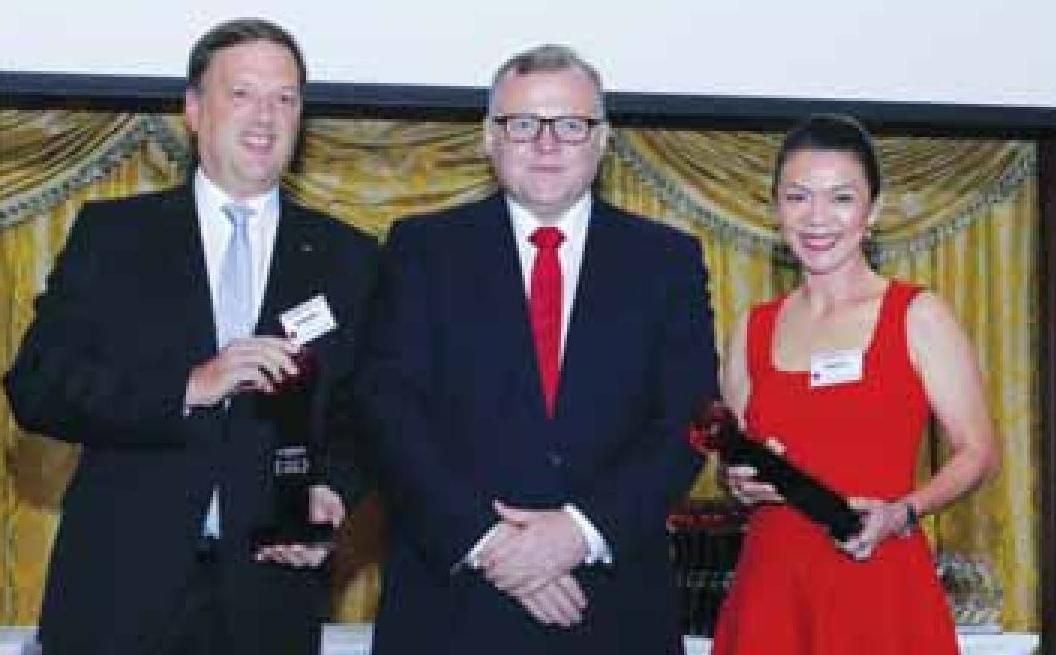

Looking ahead domestic demand stability and low insurance penetration will continue to support the sector despite the lower automotive sales and private consumption. AAGI remain focussed on growing the key business lines while beginning the transformation towards becoming a customer-centric organisation via transformation projects and digital enablers. AAGI will also continue with strategies to be implemented in 2017 with the aim of achieving sustainable growth through enhanced technical and data excellence as well as efficiency. The SmartClaims project, designed to provide enhanced and efficient claims solutions is expected to be launched early 2017 and the company is also preparing for the liberalisation of the motor and fire insurance sectors in 2017 as well. The general insurance sector is expected to be challenging in 2017 as the phased liberalisation of motor and fire tariffs being set in motion. The lower automotive sales and private consumption in 2016, underpinned by the slowdown in the economy, will continue to be taxing for the industry. AAGI will remain focused on growing its key business lines whilst driving its transformation journey into becoming a customer centric organisation. AFFIN Moneybrokers Sdn Bhd (“AMB”) AMB is an intermediary or arranger of deals between authorised financial institutions in foreign exchange and domestic money market. It has been in operation for more than 25 years and is currently the top two money broking companies in Malaysia. AMB facilitates deals between authorised financial institutions in foreign exchange and the domestic money market. AMB provides professional and quality service to its clients focusing on their immediate and long term needs by being informative and innovative incorporating the latest available technology. The net brokerage income of AMB for financial year 2016 totalled RM10.7 million as compared to RM12.2 million in 2015, a drop of RM1.5 million or 12.3%. The lower performance was attributed to a number of factors which included Bank Negara Malaysia’s imposition of several guidelines to calm market volatility and speculation in the ringgit, resulting in drastically lower market volumes, depressed commodity and oil prices and domestic political concerns. Profit before tax was RM1.6 million compared to RM2.3 million in 2015. Only the Fixed Income desk managed to surpass budgeted income by 7.3%. Among the issues which pose challenges to the company are e- broking, which will have a negative impact on conventional voice broking, consolidation or mergers of money brokers and possible consolidation of the financial industry which may reduce market players thereby siphoning liquidity in the wholesale market. However, the entry of foreign banks and issuance of new Islamic banking licences will add greater depth to the financial industry especially the expected growth of Islamic banking products and services which will have a tremendous positive effect in the domestic market. In addition, the greater dealing requirements of insurance companies and the probable entry of large corporate bodies like EPF and Petronas will also be beneficial to the market. Currently, AMB is engaged with partners to launch an Electronic Trading Platform to compete in this area. Efforts are also underway to identify and establish a formal alliance with a reputable international partner in anticipation of a greater presence of foreign money broking, companies. We will also continue with efforts to increase market share in terms of brokerage fee, provide professional service that meet clients’ needs while observing the code of ethics of the industry, leverage on innovative technology to increase efficiency of business operations and maximise shareholder’s wealth. Looking ahead, the possible consolidation or merger of money broking companies to the total brokerage income potential is expected to increase and globalisation of financial markets, i.e. borderless trading, will see the entry of large international foreign money broking companies competing in the domestic inter-bank market. Their wide network and superior technology and technical expertise will adversely impact local money broking companies. |
||
 |
|
|
